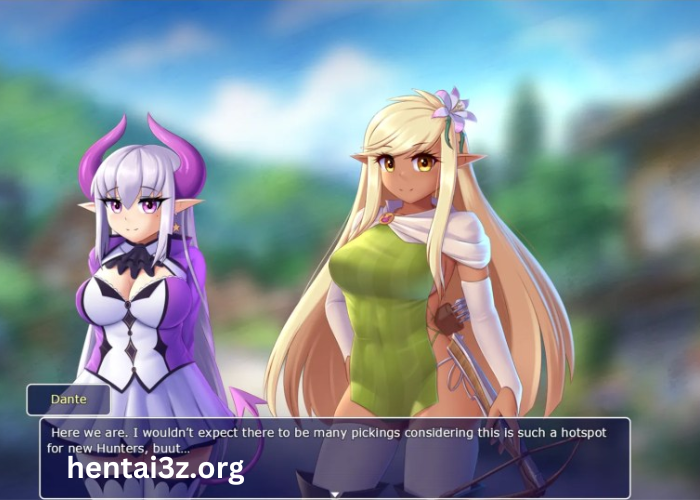The term hentaibeastiality is a controversial and often misunderstood concept that blends two distinct areas: hentai, a genre of Japanese adult content primarily depicted in animated form, and bestiality, the act of humans engaging in sexual activity with animals.
While hentai is generally accepted in many parts of the world as an adult-oriented art form, bestiality is illegal in most countries due to its association with animal cruelty and moral concerns.
This intersection raises a series of complex legal questions and ethical dilemmas, many of which remain unresolved, particularly in countries where hentai content is widely accessible.
Is Hentaibeastiality Legal in Any Country?
To understand the legal implications of hentaibeastiality, it is crucial to first investigate whether this specific form of content is legal in any jurisdiction. The legality of both hentai and bestiality varies significantly across the globe.
For instance, hentai, despite often featuring explicit and exaggerated depictions of sexual acts, is largely legal in Japan, where it originated. However, bestiality, whether depicted in animated or real form, is illegal in most countries, including Japan. Many Western nations such as the United States, Canada, and the majority of European countries have strict laws against bestiality, often classifying it as animal cruelty. These laws frequently extend to digital representations like hentaibeastiality, meaning even animated depictions could be viewed as illegal.
However, the enforcement of these laws may vary. In some places, law enforcement agencies focus more on actual crimes involving animals, while animated depictions, even if morally questionable, are given lower priority. Still, creators or distributors of hentaibeastiality may face significant legal risks, as law enforcement continues to evolve its approach to digital content.
How Do Different Countries Address Animated Depictions of Bestiality?
When it comes to hentaibeastiality, one of the most significant legal questions is whether animated depictions of acts that would otherwise be illegal are treated the same as real-world offenses. Many legal systems differentiate between actual and simulated acts. In the case of hentaibeastiality, while no real animals are involved, the content might still be considered offensive or obscene, and some legal frameworks treat it as such.
For example, in the United States, laws regarding animated pornography, including hentai, vary by state. Federal obscenity laws could potentially cover hentaibeastiality, especially if it is deemed to be offensive to community standards or harmful to minors. Similarly, in the UK, the Obscene Publications Act could make it illegal to distribute material that features hentaibeastiality.
On the other hand, Japan, which is more lenient regarding animated pornography, maintains stricter regulations concerning real-world animal cruelty, but the enforcement of hentaibeastiality remains less clear. As a result, individuals in different countries may encounter varying legal consequences when accessing, producing, or sharing this type of content.
What Are the Ethical Implications of Hentaibeastiality?
Apart from legal concerns, the ethical implications of hentaibeastiality are equally important to consider. Bestiality, whether real or depicted, is widely condemned due to concerns about animal welfare and the inability of animals to consent. Even though hentaibeastiality is animated, critics argue that it normalizes harmful behaviors and desensitizes viewers to real-world exploitation of animals.
From a broader societal perspective, the ethical discussion often centers on the potential harm that this content can cause, both to individuals and to society. Many animal rights organizations argue that any content, real or animated, that depicts cruelty or exploitation of animals contributes to a harmful cultural narrative. Additionally, individuals consuming hentaibeastiality may face social stigmatization, as these types of depictions are considered morally reprehensible in many cultures.
In essence, while some may argue that animated content doesn’t cause real-world harm, the ethical debate surrounding hentaibeastiality focuses on its potential to influence harmful attitudes toward both animals and sexuality.
Can Individuals Be Prosecuted for Possessing or Sharing Hentaibeastiality?
One of the most pressing legal questions regarding hentaibeastiality is whether individuals can be prosecuted for possessing or distributing this type of content. In many jurisdictions, possessing or distributing real-life depictions of bestiality is considered a serious crime, often classified under animal cruelty or obscenity laws.
However, the legal status of animated depictions, such as hentaibeastiality, can be more ambiguous. Some countries have laws that explicitly address animated pornography, while others may only prosecute cases involving real animals. In the U.S., for example, individuals caught with hentaibeastiality content could face charges under federal obscenity laws or local statutes, depending on how the material is classified.
Even if an individual is not directly prosecuted for possession, they could still face other consequences, such as social ostracization, online bans, or civil penalties. Distributors of hentaibeastiality content, particularly those profiting from its sale, could also be at greater risk of legal action, especially in jurisdictions where obscenity laws are strictly enforced.
How Do Censorship Laws Affect Hentaibeastiality Content?
Censorship laws play a significant role in shaping the distribution and availability of hentaibeastiality content. In Japan, for example, where hentai is legal, censorship laws still require the genital areas in explicit content to be blurred or pixelated. These laws, which aim to balance freedom of expression with public morality, apply to most forms of adult animation, including hentaibeastiality.
However, in other countries, particularly in Western nations, censorship laws are often stricter. Governments may restrict or completely ban access to websites that host hentaibeastiality content. In places like Australia and the United Kingdom, strict guidelines are in place to monitor and block access to obscene materials, including content involving animated depictions of bestiality.
The issue of censorship also extends to online platforms. Many social media networks, streaming services, and adult content websites enforce their own guidelines against explicit or obscene content, leading to the removal or banning of hentaibeastiality material. This leaves creators and consumers in a legally uncertain position, particularly in countries with vague laws regarding animated pornography.
What Are the Consequences for Online Platforms Hosting Hentaibeastiality?
Online platforms that host or distribute hentaibeastiality face significant legal risks, particularly as governments intensify their scrutiny of digital content. Websites, streaming services, and content-sharing platforms that fail to monitor and regulate the materials uploaded by users could be held liable for violating obscenity laws or facilitating the distribution of illegal content.
Under U.S. law, for example, Section 230 of the Communications Decency Act provides some protection for platforms that host user-generated content. However, this protection is not absolute, and platforms could still face legal action if they are found to be promoting or profiting from obscene material like hentaibeastiality.
Additionally, international regulations, such as the EU’s Digital Services Act, impose strict rules on online platforms regarding illegal content, including pornographic material that violates community standards. As a result, platforms may be more likely to preemptively ban or remove any content that could be seen as controversial, including hentaibeastiality.
Can Minors Access Hentaibeastiality Content and What Are the Legal Consequences?
One of the most concerning aspects of hentaibeastiality is its potential accessibility to minors. In many countries, providing adult content to minors is illegal and can result in severe legal penalties for both the distributor and the individual who shares the material.
While adult websites often use age verification systems, these systems can be easily bypassed, leaving minors vulnerable to exposure to harmful content. The depiction of hentaibeastiality, given its extreme nature, can have particularly damaging psychological effects on young viewers, raising concerns about the adequacy of existing safeguards.
In legal terms, websites that fail to implement proper age restrictions could face significant fines or even criminal charges, especially if authorities find that they knowingly allowed minors to access explicit material. Furthermore, parents or guardians of minors who access hentaibeastiality could face legal consequences if authorities believe they have failed to protect their children from inappropriate content.
Conclusion
The legal implications of hentaibeastiality are complex and multifaceted, intersecting with issues of obscenity, animal rights, censorship, and digital privacy. As laws around the world evolve to address new forms of adult content, animated depictions like hentaibeastiality remain in a gray area, with potential legal consequences for creators, distributors, and consumers alike.
While some argue that animated content poses less harm than real-world depictions, many legal systems treat hentaibeastiality as offensive, and individuals engaging with this content may still face prosecution under obscenity or censorship laws. Moving forward, the ongoing debate will likely focus on balancing freedom of expression with the need to protect animals, minors, and society from potentially harmful material.
Understanding the broader legal implications of hentaibeastiality is critical for navigating the legal risks and moral considerations surrounding this controversial topic.




